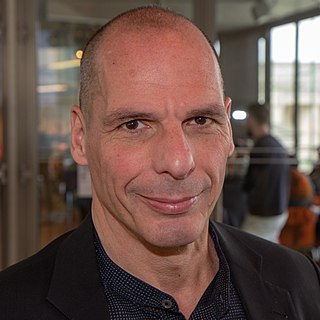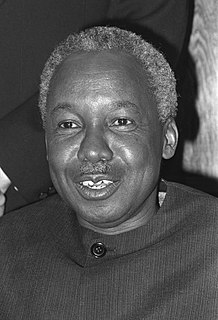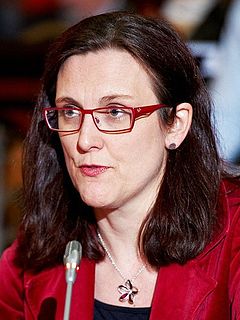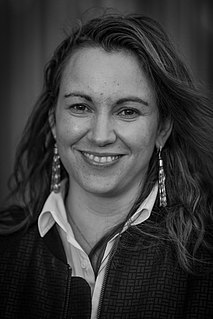A Quote by Iain Duncan Smith
I am an optimist about the UK. We have been involved in trade with our European partners, which we will always be doing whatever this relationship is. We are a member of the EU. That gives us benefits. But we have to figure out where that is going. In the world, we are a global trader already.
Related Quotes
European Union partners never said European Union partners're going to renege on any promises, European Union partners said that European Union partners promises concern a four-year parliamentary term, european Union partners will be spaced out in an optimal way, in a way that is in tune with our bargaining stance in Europe and also with the fiscal position of the Greek state.
The world has always been a dangerous place. Now it is dangerous in a different way, because the world order that we've known since the end of the Cold War has been radically transformed. All of the institutions that preserved peace and promoted global trade will be weaker - NATO, the EU, NAFTA - and US relationships with other countries will change, too.
Having come into contact with a civilization which has over-emphasized the freedom of the individual, we are in fact faced with one of the big problems of Africa in the modern world. Our problem is just this: how to get the benefits of European society - benefits that have been brought about by an organization based upon the individual - and yet retain African's own structure of society in which the individual is a member of a kind of fellowship.
In a changing world, some jobs disappear and new ones are created. That's how it has been for hundreds of years. When jobs disappear, the vast majority is not because of global trade, but because of technical advances, robotization and so on. So, we - and in particular, EU member states - have to invest more in training and education so that people will have new opportunities if their jobs are cut. The EU can also better utilize its investment and social funds to protect its citizens from swift changes.
I should also say that apart from the negotiations that are taking place within the WTO, we are ourselves involved in all manner of bilateral negotiations, or, if they are not bilateral, with the South African Customs Union and the European Union. All the member countries of the European Union have now ratified the agreement that we have with the EU and that opens up the EU market in various ways.
EU tech companies face massive global competitors from Silicon Valley and China. Our goal should be to create real European champions and not to focus on a narrow competition between European states. I strongly believe the European Union can help a lot there by promoting a homogeneous and startup-friendly framework that could help European digital champions to become truly global.
I want completing the single market to be our driving mission. I want us to be at the forefront of transformative trade deals with the US, Japan and India as part of the drive towards global free trade. And I want us to be pushing to exempt Europe's smallest entrepreneurial companies from more EU directives.
I'm going to be very clear in everything we do. I believe the special relationship is important to us, it's important more widely across Europe and the world. But I will also be very clear in the decisions I take and the conversations I have about UK interests. I'm not going to say anything different to Donald Trump to what I'm saying to you in terms of UK interests and where those lie.
If the Europeans truly wish to improve their NATO contribution they can show it simply enough. They can establish professional armed forces, like those of the UK. And they can acquire more advanced technology. Indeed, unless that happens soon the gulf between the European and US capabilities will yawn so wide that it will not be possible to share the same battlefield. Alas, I do not think that sharing battlefields with our American friends - but rather disputing global primacy with them - is what European defence plans are truly about.
The fact is we're always going to be interwoven with the American economy, and that's why it's important to have a good, strong, constructive relationship with whoever the American President is and whatever administration it is, whatever their priorities. We will always work constructively together. But at the same time, Canadians expect us to stand up for our own values, to make our own choices, whether it's around climate or multilateral institutions, and that's exactly what we're going to keep doing.

































